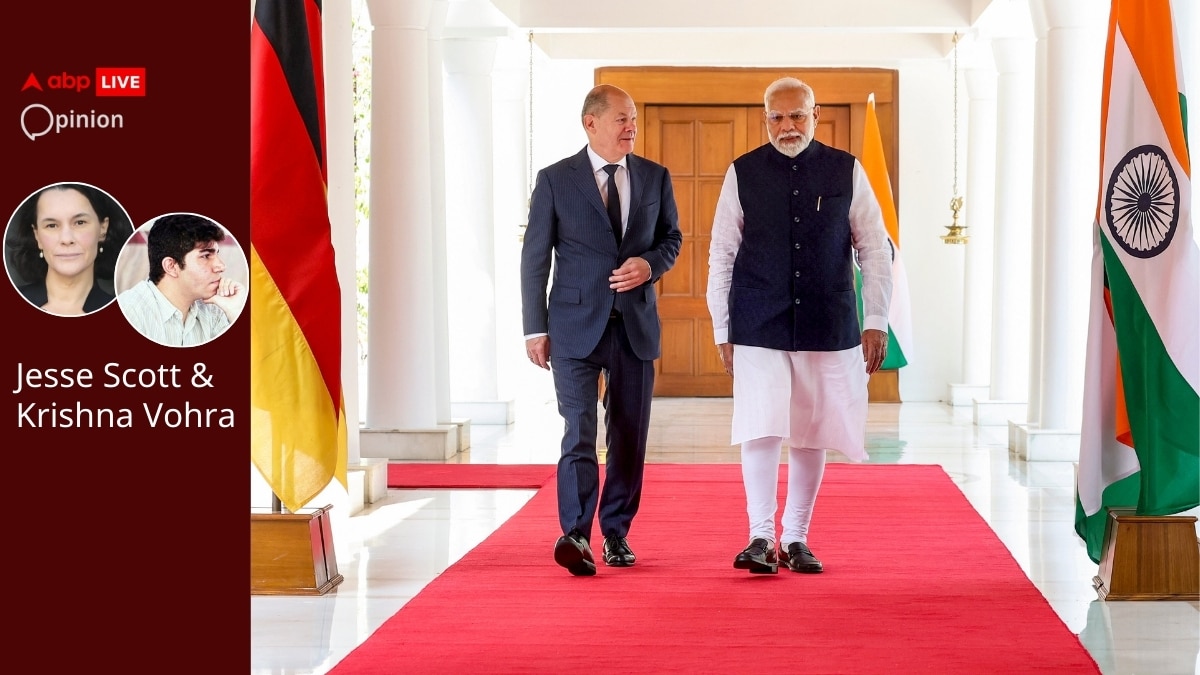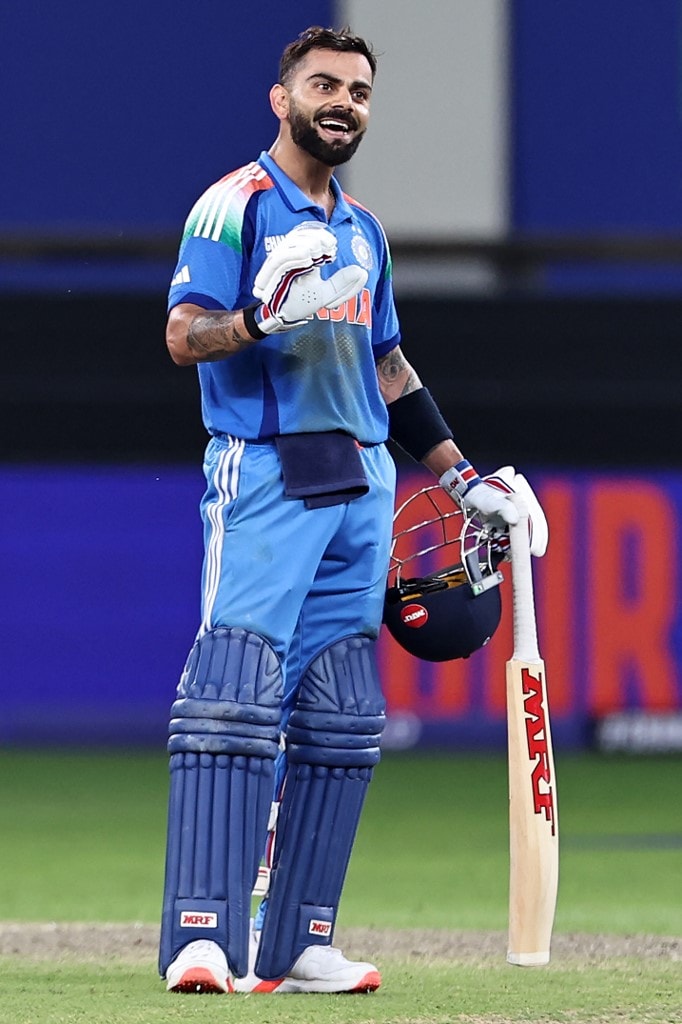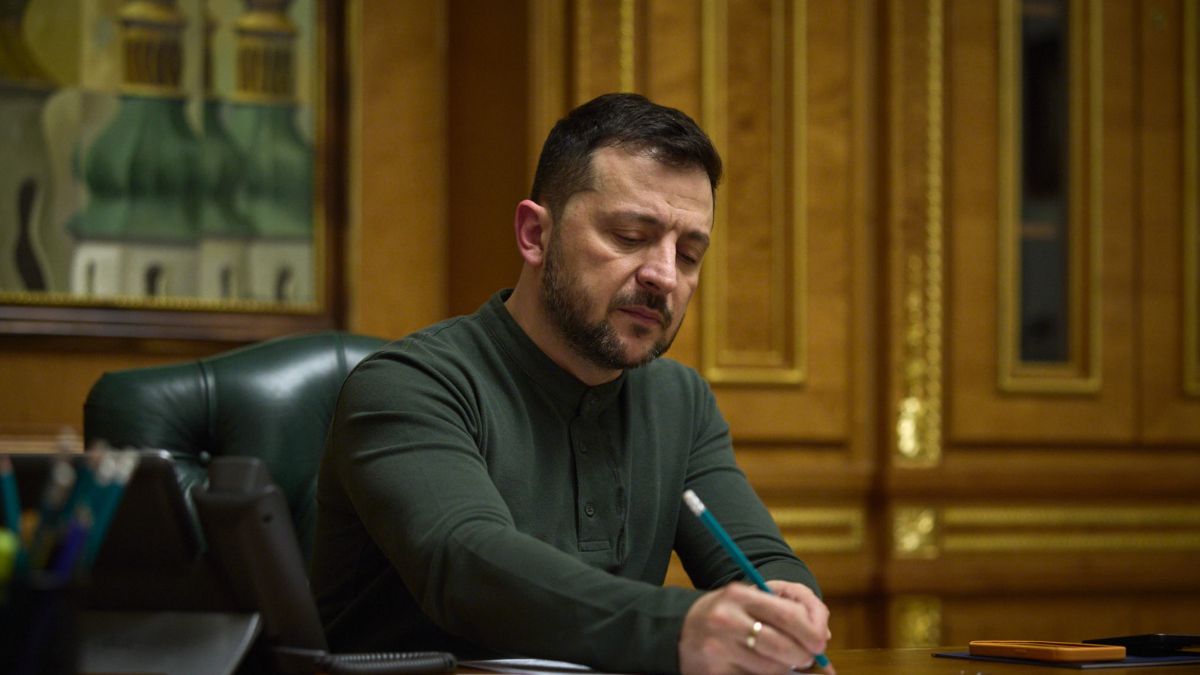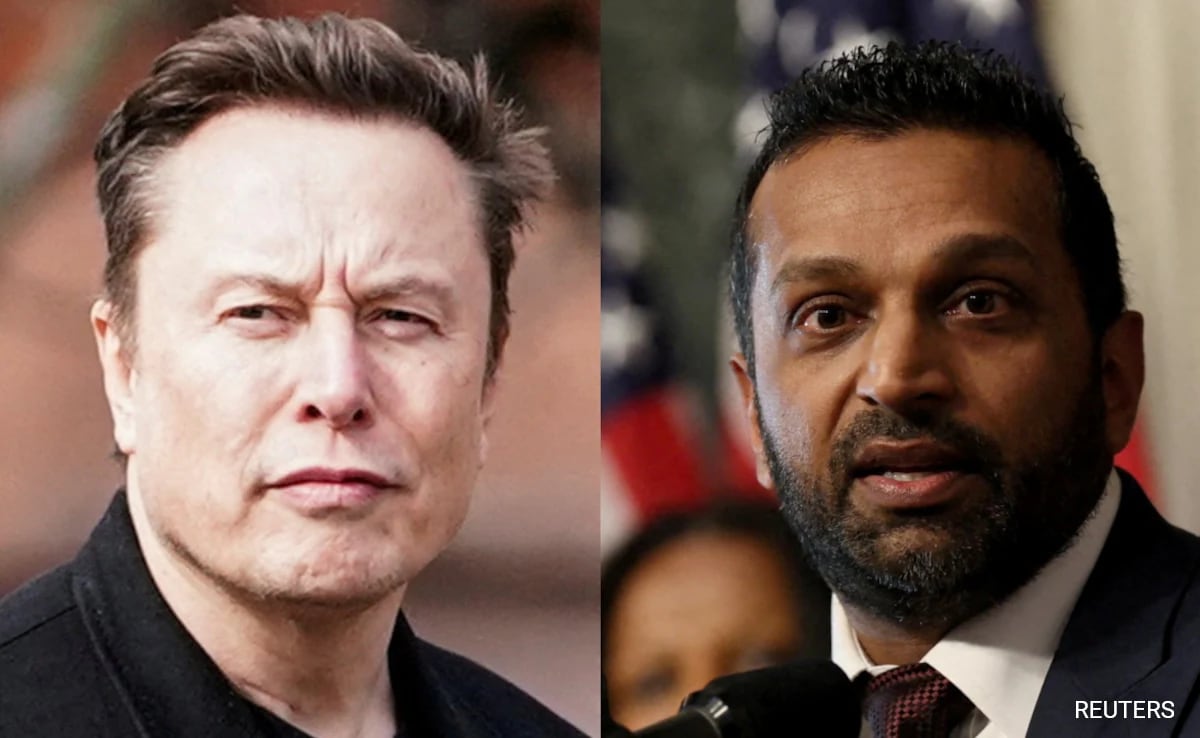<p>Last year, 2024, saw important elections around the world, and some political surprises. In Spring 2025, Europe is having its turn. On February 23, Germany will vote for a new federal government, and France is experiencing parliamentary turmoil with its third prime minister in a year. Neither of these national political crises are likely to resolve before the summer. Across Europe as a whole, another 4-5 smaller countries presently lack functioning governments. Meanwhile, at European Union level, the European Commission has just started a new five-year mandate in Brussels under a significantly churned leadership team, and Poland now holds the rotating chair of the member states’ councils.<span class=”Apple-converted-space”> </span></p>
<p>Pragmatically, Europe is a joint entity: a $20 trillion economic block usually co-led by Brussels, Berlin, and Paris. Where does power sit now that Berlin and Paris are preoccupied with domestic politics? Will the German election result bring changes in trade policy or support for Ukraine? What are the implications of the German election for the visit to India, just days later on February 28-29, by all of the European Commissioners? And, with Rome always a less influential European capital, does it matter that the prime minister of Italy, Georgia Meloni, attended Donald Trump’s inauguration?<span class=”Apple-converted-space”> </span></p>
<p>Power shifts and political uncertainties are always intriguing. Some of what is happening this Spring has real consequences both inside Europe and also for Europe’s worldwide relationships. Behind the political day-to-day, Europe is facing deep geo-economic and geo-political challenges. As <a href=”https://www.socialeurope.eu/europes-challenge-in-a-new-era-of-shift-and-shock”>Brigid Laffan</a> writes: “The emerging 21st-century global order/disorder is not one that suits the EU’s DNA, its history or preferences.” This year will test the maxim that Europe, faced with crisis, always pulls together and strengthens its common action as “team EU”.</p>
<p><strong>ALSO READ ON ABP LIVE | <a href=”https://news.abplive.com/news/world/all-about-germany-s-far-right-afd-backed-by-elon-musk-snap-poll-trending-1752609″>All About Germany’s Far-Right AfD, Backed By Elon Musk & Polling 2nd Ahead Of Snap Poll</a></strong></p>
<h2><strong>Germany: Voting About The Economy Or Immigration?</strong></h2>
<p>Germany normally holds federal elections every four years. February’s vote comes six months early, following the collapse of Chancellor Olaf Scholz’s red-amber-and-green “traffic light” governing coalition of SPD Social Democrats (red), FDP Liberals (amber), and Greens (green). Opinion polls show that the opposition CDU-CSU centre-right Christian Democrats (black) led by Friedrich Merz are likely to win the most votes, resulting in around 30% of seats in the Bundestag. This is where it gets interesting. Merz will not have enough votes to govern alone: he will need a coalition partner. Which party comes second in vote share, and which becomes the coalition partner, will significantly constrain his agenda.</p>
<p>For Germany’s mainstream political parties, this is an economy election. Germany is in economic doldrums: in 2024, the economy contracted for the second year in a row, and the 2025 forecast is limited growth at best. Once the star of European manufacturing efficiency and innovation, Germany now acknowledges key weaknesses in digital technologies, and its outdated public and industrial infrastructure. German car manufacturers are struggling to compete in the EV market. High energy prices have added to German businesses’ woes, with an electricity capacity crunch plus the high cost of gas LNG imports resulting in prices of EUR 100/MWh in January 2025.<span class=”Apple-converted-space”> </span></p>
<p>These economic challenges are made more difficult by a “debt brake” budget rule. This German constitutional principle restricts the country’s annual public deficit to 0.35% GDP, and was the key cause of the traffic light coalition’s early break up because it is ideologically fundamental for the FDP liberals. The brake rule is opposed by the Greens, who wanted to invest in energy transition out of fossil fuels. And it also became unacceptable to the SPD, which wanted to respond to Russia’s invasion of Ukraine by spending more money on defence and on large subsidies cushioning German energy consumers from price shocks. To answer these problems, voters are being offered corporate tax cuts by the CDU-CSU and FDP, while the SPD and Greens propose increased public investments in infrastructure and technology, enabled by loosening the debt brake.<span class=”Apple-converted-space”> </span></p>
<p>For Germany’s populist hard right-wing Alternative for Germany (AfD) party, in contrast, this election is about immigration. The AfD currently polls second behind the CDU-CSU at nearly 20% of voters. Its political campaign is dominated by fear and anger linked to the arrival in Germany of more than a million Syrian refugees in the 2010s, and another million Ukrainian refugees since Russia’s invasion. An ugly political debate now confuses the roles of refugees, legal migrants, and illegal migrants, not helped by external interference by Elon Musk, and also from Russia. However, the underlying issue is not simply cultural: the biggest part of German government spending is social benefits, and “immigration into the social system” is increasingly unpopular with German citizens who face cuts in their own social payments, especially public pensions.</p>
<p>From an outside perspective, the German election looks a bit odd. In actuality, Germany’s public debt as a proportion of GDP has been shrinking; a record that contrasts with its G7 and G20 peers. Meanwhile, in the last weeks, Merz has tried to appeal to voters on both economy and immigration, and, as a result, immigration policy has become an internal fight within the CDU-CSU over whether or not to maintain the party’s longstanding “firewall” commitment never to work with the AfD. Indications that Merz might break the firewall have triggered a public rebuke from Germany’s great former Chancellor, Angela Merkel, in her first public political intervention since her retirement in 2021.<span class=”Apple-converted-space”> </span></p>
<p><span class=”Apple-converted-space”><strong>EXPLAINED | <a href=”https://news.abplive.com/explainers/explained-why-do-germans-have-2-votes-how-germany-democracy-works-1752344″>Why Do Germans Have 2 Votes? Here Is How Germany’s Very Complicated Democracy Works</a></strong></span></p>
<h2><strong>European Alliances Are The Key To German Politics</strong></h2>
<p>After the February 23 votes are counted, Merz will be on track to become Germany’s new Chancellor. But real changes will be a lot harder to secure. German coalitions take months to negotiate, so Scholz will lead a caretaker government until at least April or May. And deep compromises will be needed to bring either the SPD or the Greens, currently polling at 15% each, into a partnership with the CDU-CSU. Germany might even get its first Green Finance Minister, if the party makes this favourite ambition its price for supporting Merz.<span class=”Apple-converted-space”> </span></p>
<p>The biggest difficulty Merz will face, however, is not his choice between SPD, Greens, or AfD. Nor will it be the debt brake reform. To achieve German goals on economic competitiveness, using EU services-sector and capital-market integration and EU scale funding for basic research in science and technology, Merz will need to shape EU policy decisions. He will also need the EU to deliver policies on security or migration. To do this, he will need good cooperation with the European Commission, with France and Poland, and across European centre-right political networks.<span class=”Apple-converted-space”> </span></p>
<p>Merz is a new type of German politician. He began his political career not in local or national office, but in the EU, as a member of the European Parliament in the 1980s. He is much more focused on pan-European relationships than his predecessors, and among his greatest political assets is long experience of navigating the “big tent” of the transnational European People’s Party (EPP) centre-right political network. This EPP network currently includes another 11 EU national leaders, the European Commission president Ursula von der Leyen, the president of the heads of government European Council meetings António Costa, and the European Parliament’s most powerful caucus. Most of these leaders have travelled to Berlin to support Merz’s election campaigning, and very few of them would be comfortable with the CDU-CSU cooperating with the AfD. Notably, Merz expects all ministers in his future government to be able to speak proper English, so they can attend EU meetings in person and strengthen Germany’s weight in Brussels.<span class=”Apple-converted-space”> </span></p>
<p>Merz wants to use this centre-right strength in numbers to fend off populist right-wing challengers on the one hand, and on the other hand to water down EU red-tape regulations that require businesses to track, report, and eliminate issues like child labour in their supply chains and to apply green finance standards. He also aims to change EU asylum law. He is ambitious to lead a joint European strategy to confront Trump on tariffs. Crucially, Merz will look to his fellow German at the Commission, von der Leyen, and to Donald Tusk, the centre-right prime minister of Poland.<span class=”Apple-converted-space”> </span></p>
<p>Poland has been steadily rising in influence within Europe. Poland’s longtime strategic warnings about Vladimir Putin were vindicated in 2022. Unlike other EU leaders, Tusk has a robust parliamentary majority from his election win in 2024. He is also a former president of the European Council who knows how to manage Brussels. As the current holder of the rotating chair of the member states’ councils, Poland is responsible for steering EU decisions to consensus.<span class=”Apple-converted-space”> </span></p>
<p>German deals with Poland won’t come cheap. For Poland, the central issue of European politics is the war in Ukraine. Tusk needs answers to the short-term question of whether the EU will increase support for the Ukrainian war effort against Russia, or whether it will prevail on Kyiv to consider a peace settlement that would leave Russia in control of the country’s eastern regions. Tusk also wants answers to medium-term questions about Ukraine’s promised process of becoming a member state of the EU, which will probably result in a radical reduction in EU budget transfers to Poland.<span class=”Apple-converted-space”> </span></p>
<p>Meanwhile, Tusk also is facing an election: his job is not at stake, but Poland will vote for a new president on April 18. If voters re-elect Tusk’s opponent, a far right-wing populist, this could be just as important in its overall effects on the “team EU” centre-right power block as the shape of the German coalition that results from February’s vote.<span class=”Apple-converted-space”> </span></p>
<p><span class=”Apple-converted-space”><strong>ALSO READ ON ABP LIVE | <a href=”https://news.abplive.com/news/world/pope-francis-from-secret-conclave-to-room-of-tears-here-s-how-a-new-pope-is-chosen-1753320″>From Secret Conclave To Room Of Tears: Here’s How A New Pope Is Chosen</a></strong></span></p>
<h2><strong>Impacts On India?</strong></h2>
<p>Why should India care about Europe’s political and economic troubles? Europe’s economy is massive: the EU is India’s largest trading partner (€122 billion in trade in goods in 2023-24) and a major foreign investor (€108.3 billion in foreign investment stock in 2022). Von der Leyen wants to work with Social Democrats and Greens to maintain EU momentum on decarbonisation, and to agree structural reforms to improve economic productivity. She wants to increase investment flows through trade deals, with India as the top priority. Brussels debates about ‘European preference’ in government tenders signal that the bloc is moving away from the free market WTO model. Europe’s centre-right is wary of Trump, but its populists are keen to align with the United States.<span class=”Apple-converted-space”> </span></p>
<p>When you read European political news, remember that what happens in Berlin impacts Paris and what happens in Warsaw impacts Brussels; likewise, Rome, Stockholm, Lisbon, Sofia, and Riga are all interlinked. It is impossible to understand European politics by looking only at single countries. On many issues, including climate action and trade, which is negotiated jointly from Brussels, the 27 EU member states work in lockstep. Even on issues that remain national decisions, such as social benefits, there is a lot of policy coordination and political domino effects.<span class=”Apple-converted-space”> </span></p>
<p><em>Jesse Scott is Senior Fellow, Observer Research Foundation, New Delhi, and Adjunct Professor at Hertie School, Berlin. Krishna Vohra is a Research Assistant at the Centre for Economy and Growth in New Delhi.</em></p>
<div id=”article-hstick-inner” class=”abp-story-detail abp-story-detail-blog”>
<p><strong>[Disclaimer: The opinions, beliefs, and views expressed by the various authors and forum participants on this website are personal and do not reflect the opinions, beliefs, and views of ABP Network Pvt. Ltd.]</strong></p>
</div>
World
Opinion: Germany Votes, Europe Waits — Why India Can’t Ignore The Political Shake-Up That Could Reshape EU
by aweeincm

Recent Post

Watch: Kohli’s ‘Calm Down’ Gesture After India’s Domination vs Pak Viral
Cometh the hour, Cometh the man! On Sunday, it was ... Read more

Zelenskyy Says ‘Ready To Step Down’ As President In Exchange For NATO Membership For Ukraine
<p>Ukrainian President Volodymyr Zelenskyy said he is ready to step ... Read more

Delhi Man Takes Wife To Maha Kumbh, Slits Her Throat At Hotel To Hide Affair
A couple from Delhi’s Trilokpuri arrived in Uttar Pradesh’s Prayagraj ... Read more

Kash Patel Asks FBI Employees To Ignore Elon Musk’s “Justify-Your-Job” Mail
Tech billionaire Elon Musk’s “justify-your-job” diktat to US federal employees ... Read more